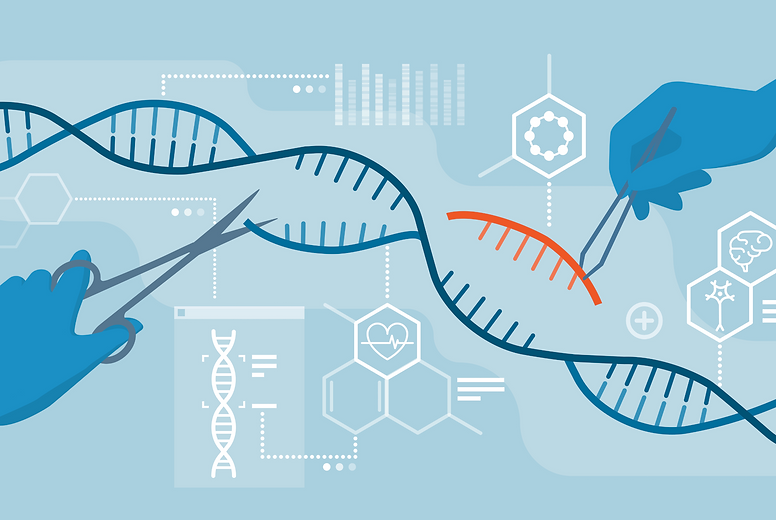Bruciaga AP Research

Gene Editing in Science Fiction Novels
@the scientist magazine 2020
The Research
Gene editing has emerged as a new technology that has the potential to alter not only the foods we eat but also the humans in society. This has caused numerous debates and questions from both the scientific community and the public, determining whether or not this type of technology is safe. Although a lot of research has been done on the debated issues on both sides, yet there has been no research done on analyzing themes over a period of time within Science-fiction novels about human gene editing. 8 novels will be analyzed for consistent themes and debated issues in order to understand how it can influence readers. As shown by many studies, moral judgment can come from and be influenced by fiction books. Thus reading the novels that pertain to human gene editing can open up a moral and ethical debate that otherwise wouldn’t have existed.
Brave New World
Aldous Huxley (HarperCollins)
1932
Slan
Van Vogt (Arkham House)
1946
Hellstrom's hive
Frank Herbert (Doubleday)
1973
Blood Music
Greg Bear (Arbour House)
1985
Beggars in Spain
Nancy Kress (William Morrow CO)
1991
Never Let Me Go
Kazuo Ishiguro (Knofp Douday)
2005
Wither
Lauren Destefano (Simon and Cheuster)
2011
Upgrade
Blake Crouch (Ballantine Books)
2023